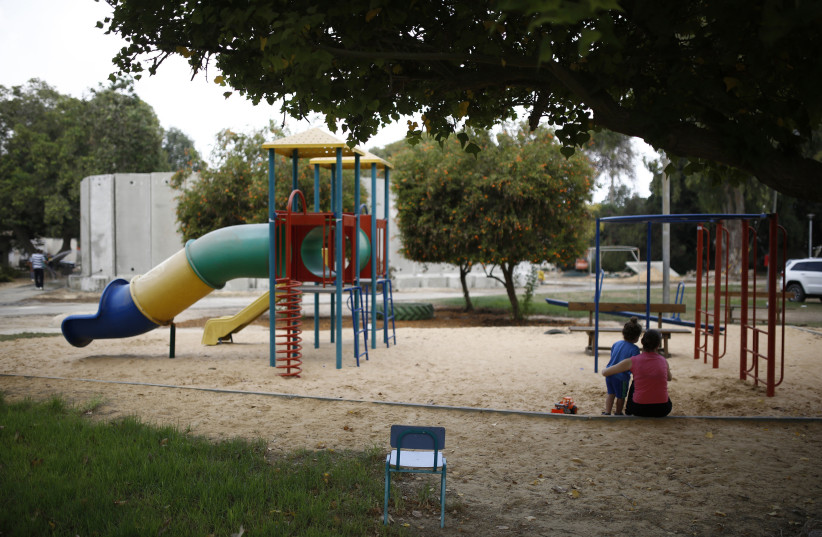Some parents take their anger to the streets * Number of active cases continues to decline

Preschools and daycares are resuming activities on Sunday, as the number of coronavirus active cases in Israel continues to decline.
The reopening of the facilities for up to age six represents a new step in the country’s exit strategy from the restrictions imposed to contain the virus outbreak.
However, disruptions are expected as the guidelines issued to ensure the safety of the children, and especially the need to divide them in smaller groups, will force up several hundred thousand children to remain at home.
For many parents, especially those who find themselves unable to return to work, the solution offered by the government – a rotation with children going to school only three days a week – is unsatisfactory.
Moreover, according to The Jerusalem Post’s Hebrew sister publication Maariv, several networks of private daycare centers – like Wizo, Naamat and Emunah, which serve about 50,000 children, mostly in the periphery of the country – will remain closed.
As reported by Channel 12, some parents took their anger to the streets and rallied in front of the house of Welfare Minister Ofir Akunis on Saturday night.
Several other rallies were organized in Tel Aviv, among others by young people affected by the economic crisis sparked by the epidemic.
Meanwhile, the government authorized some measures expanding the unemployment benefits. The measures include lowering the required period to receive unemployment to six months for all those who were laid off or put on unpaid leave up until the end of April and to extend the period of eligibility until the end of May for all those whose entitlement was scheduled to end before then. Moreover, Bituach Leumi was authorized to give an advanced payment on unemployment benefits for the month of April up to 8,000 to those whose application is still being processed.
One of the sectors that has been most negatively impacted by coronavirus is the restaurant industry. According to the current outline, restaurants and cafés are expected to be able to open their doors only at the end of the month. However, many owners are asking to allow them to reopen earlier.
As of Saturday night, there were 4,831 active COVID-19 cases in Israel, while 11,376 patients are confirmed to have recovered, the Health Ministry announced. The total number who have been infected with the virus in Israel stands at 16,454. Two people succumbed to the coronavirus on Saturday, bringing the total death toll of the outbreak to 247.
The infection rate has been constantly declining for days: May 1 marked the last day that over 100 new cases were registered in a day, and since then, most days have had less than 40 new patients identified.
Currently, 241 coronavirus patients are hospitalized, some 79 of whom in serious conditions, with 64 who are intubated.
The coronavirus crisis helped improve relations between Jews and Arabs, according to a survey released Sunday by the Israel Democracy Institute. However, relations between the haredi (ultra-Orthodox) community and the rest of Israeli society appear to have been damaged.
The majority of the general public (57%) believes that Jewish-Arab relations have improved, the poll found. When broken down by nationality, Arabs expressed even greater improvement than Jews – 64% versus 56%, respectively.
However, when it comes to relations between the ultra-orthodox and the rest of society, a different picture emerges. Some 62% of the general public – 57% of Arabs and 63% of Jews – say that the coronavirus crisis moderately or even greatly damaged this relationship.
As reported by The Jerusalem Post
